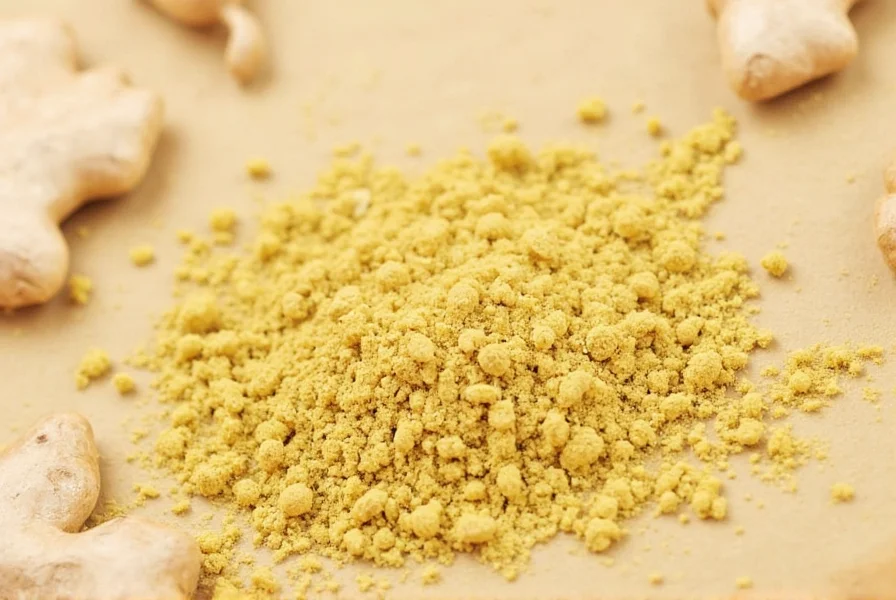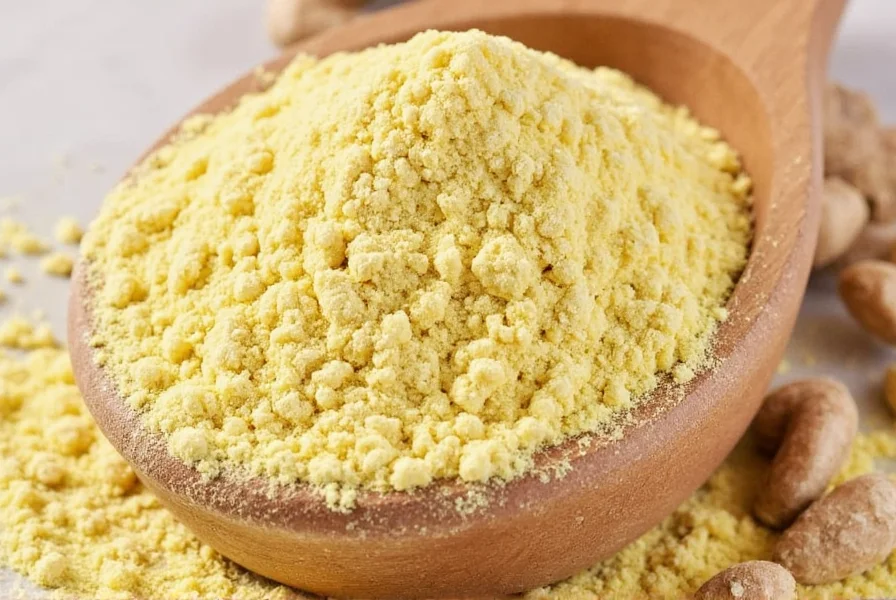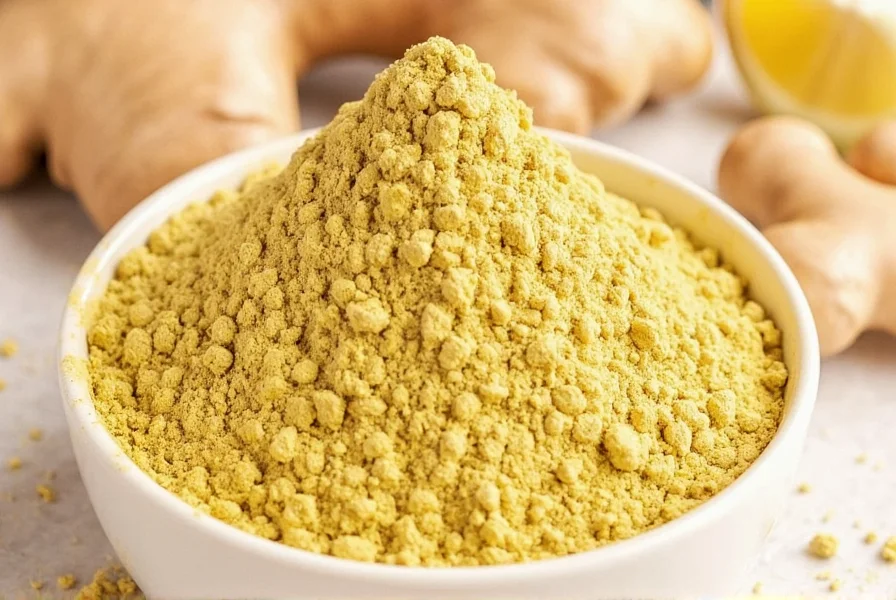When exploring the differences between powdered ginger and fresh ginger, understanding their unique properties helps determine which form best serves your culinary or wellness needs. Powdered ginger provides consistent flavor and potency without the need for peeling or grating, making it ideal for baking, spice blends, and convenient daily use. This dried form of ginger root has been used for centuries in traditional medicine systems across Asia and the Middle East, with modern research increasingly validating many of these traditional applications.
What Exactly Is Powdered Ginger?
Powdered ginger undergoes a careful production process that begins with selecting mature ginger rhizomes. After thorough washing and peeling, the ginger is sliced thinly and dehydrated at low temperatures to preserve maximum nutrient content. The dried pieces are then finely ground into a uniform powder. This process concentrates ginger's active compounds while removing water content, resulting in approximately three times the potency by volume compared to fresh ginger.

Nutritional Profile and Active Compounds
The primary bioactive compounds in powdered ginger include gingerols, shogaols, and zingerone. While fresh ginger contains higher levels of gingerols, the drying process converts some gingerols to shogaols, which may have enhanced bioavailability. Research published in the Journal of Agricultural and Food Chemistry indicates that powdered ginger maintains significant antioxidant capacity despite the dehydration process.
| Compound | Concentration in Powdered Ginger | Primary Benefits |
|---|---|---|
| Gingerols | 3-6% | Anti-inflammatory, antioxidant |
| Shogaols | 1-3% | Enhanced bioavailability, digestive support |
| Zingerone | 0.5-1.5% | Nausea relief, antioxidant properties |
Culinary Applications of Powdered Ginger
Chefs and home cooks value powdered ginger for its consistent flavor profile and extended shelf life. Unlike fresh ginger, which varies in potency depending on harvest time and storage conditions, powdered ginger delivers reliable results in recipes. It works particularly well in:
- Baking applications where fresh ginger would create unwanted moisture
- Dry rubs and spice blends requiring uniform distribution
- Teas and warm beverages where immediate dissolution matters
- Commercial food production requiring standardized flavor profiles
When substituting powdered ginger for fresh in recipes, use this powdered ginger conversion ratio: 1/4 teaspoon powdered ginger equals approximately 1 tablespoon fresh grated ginger. This knowledge proves essential for cooking with powdered ginger successfully.
Science-Backed Health Benefits
Multiple clinical studies support specific health applications of powdered ginger. A comprehensive review in Nutrients journal analyzed 109 studies on ginger's therapeutic effects, with powdered ginger showing particular efficacy for:
Digestive Support
Research demonstrates that consuming 1-1.5 grams of powdered ginger daily significantly reduces symptoms of indigestion and bloating. The compound gingerol stimulates digestive enzymes while relaxing gastrointestinal muscles.
Nausea Relief
For those seeking natural remedies for morning sickness, powdered ginger provides effective relief. A study in Obstetrics & Gynecology found that 1 gram of powdered ginger daily reduced pregnancy-related nausea by 25% compared to placebo. Similar benefits apply to motion sickness and postoperative nausea.
Inflammation Management
The anti-inflammatory properties of powdered ginger make it valuable for managing chronic inflammation. Research in Arthritis journal showed that participants taking 2 grams of powdered ginger daily experienced significant reduction in osteoarthritis pain compared to control groups.

Powdered Ginger vs Fresh Ginger: Key Differences
Understanding powdered ginger versus fresh ginger helps determine which form best serves your needs:
- Convenience: Powdered ginger requires no preparation and measures consistently
- Shelf life: Properly stored powdered ginger maintains potency for 2-3 years versus 2-3 weeks for fresh
- Flavor profile: Powdered ginger offers warmer, more concentrated flavor; fresh provides brighter, sharper notes
- Nutrient concentration: Powdered contains approximately 3x the active compounds by volume
- Culinary applications: Powdered works better in dry applications; fresh excels in raw preparations
Proper Storage and Maximizing Shelf Life
To maintain powdered ginger freshness and potency, store it in an airtight container away from light, heat, and moisture. Glass jars with tight-fitting lids work best. Keep your container in a cool, dark cupboard rather than near the stove or sink. Properly stored powdered ginger retains optimal potency for 24-36 months, though it remains safe indefinitely (with gradually diminishing flavor and benefits).
Recommended Dosage Guidelines
For therapeutic use of powdered ginger, research supports these dosage ranges:
- Digestive support: 500-1000 mg taken 30 minutes before meals
- Nausea relief: 250-1000 mg every 4 hours as needed
- Inflammation management: 1000-2000 mg daily in divided doses
Always start with lower doses to assess tolerance. Consult a healthcare provider before using powdered ginger medicinally if you take blood thinners, diabetes medications, or have gallstone issues.
Potential Side Effects and Considerations
While generally safe, some individuals may experience mild side effects from powdered ginger, particularly at higher doses. These can include heartburn, mouth irritation, or mild digestive upset. People with bleeding disorders should exercise caution due to ginger's mild blood-thinning properties. Pregnant women should limit intake to no more than 1 gram daily unless directed otherwise by their healthcare provider.
Maximizing Benefits in Daily Use
For optimal absorption of powdered ginger's active compounds, combine it with black pepper (which contains piperine) or consume with healthy fats. Adding powdered ginger to warm (not boiling) liquids preserves more volatile compounds than adding it to vigorously boiling beverages. When using powdered ginger in baking, incorporate it into dry ingredients first for even distribution throughout your recipe.











 浙公网安备
33010002000092号
浙公网安备
33010002000092号 浙B2-20120091-4
浙B2-20120091-4